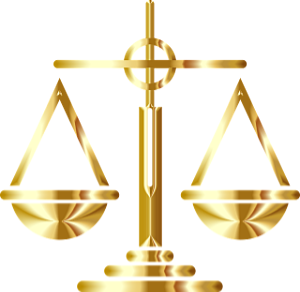
One of the challenges we must overcome is understanding our collective, and specifically our youth's, self-identification with Global Citizenship. Whereas prior to the State of Israel's independence the stateless Jew was relegated to her/his own group-identity (or ghetto), 1948 changed all that. Just as Herzl willed it, and predicted it, Israel – and by extension today's Jew – has gone global. In reaction to global citizenship, ethnocentricity is seemingly less appealing. With the advancement of technology, high speed communications, accessible trans-continental transportation, and high-volume global human-interactions, today's Jew may find her/himself torn within the tension of Jewish-group self-preservation versus global-group-identity. This tension has only intensified since October 7. While global Jewry actively seeks to participate in social justice causes, global economies, business innovation, and other areas of development, the violent targeting of Israelis and the subsequent rise of Jew-hatred across university campuses, social media, and public spaces have raised sobering red flags. These developments have forced many Jews to reconsider the balance between universalism and the particular needs of Jewish safety and continuity. Generally speaking, the social media generation inspired by the global trends, may no longer see themselves as "chosen"; not within the bare-minimum sense of belonging to one ethnic group, nor to the land for that matter, rather they seem themselves as are part of the larger global social-group of loosely affiliated and overlapping layers of group-identity (i.e., American, LGBTQ, universal values, global citizenship, entrepreneurship, and more) competing with the collective Jewish identity and narrative. It is important that as part of our reclamation, redefining and re-education of Zionism, that we consider incorporating a global, perhaps ambiguous, understanding of what Zionism means today. Rather than trying to pinpoint what Zionism means, we may opt for a wider definition; a definition of Zionism that is wide enough to include the variety of sub-group identities Jews belong to, and safe enough to ensure historical continuity, peoplehood, and mission, as part of Zionism's original principle of taking action – anchored in national aspirations. The post-October 7 reality demands that this wider definition also acknowledge the renewed awareness of vulnerability while reaffirming the commitment to engage with the world. If we expect others, including our youth, to feel included in our collective identity, we should feel comfortable enough exploring what Zionism means to others.
Here is my purposely ambiguous meaning of Zionism: Zionism is the physical manifestation of the Jewish soul. Transmission of Zionism is experiential; it is through experientialism – based on imminent truths – that we are connected to real-world events. We explore, we ask questions, and we reveal purpose. Seeking clarity, purpose, and answers to difficult questions, permeates throughout our history. We identify inquiry and find purpose throughout Israelite cultic practice, Rabbinic Judaism, and of course Zionism, all rooted in experientialism, in reaction to the world we live in. It was only after Jacob's earthly wrestling with Gd's presence that Jacob transformed to Isra-el: "…for you have struggled with Gd and with humanity and have prevailed…" (Genesis 32:28). Jacob underwent a transformation, as did Jacob's "Children of Israel" whom upon earthly experiences – perhaps revelation at Sinai – transformed to the People of Israel, and later through post-exilic experiences to the Nation of Israel and of course the State of Israel, all experiential, all transformative, and all in reaction to the world we live in and collective events we experienced. Today's Zionism, particularly in the aftermath of October 7, seeks its next exposé – one that acknowledges pain and trauma while refusing to abandon hope and the pursuit of a better future. Early Zionist thought was fed by visions of a utopia, of an Israel that would be perfect and once it came to be, the modern nation-state would initiate a wave of understanding and co-existence resulting in an ideal global community. The visions of a utopia have yet to be realized, if ever, yet entry into the global community of nations is a reality that continues to alter the Jews' psyche from exilic and excluded, to welcomed and accepted – by and large – among the family of nations. As a result, and in reaction to ongoing geo-political global events, Zionism as it was is questioned.
The war that followed October 7 and the troubling global responses to it have complicated this narrative. They serve as stark reminders that acceptance remains conditional for many Jews, that antisemitism can rapidly resurface in moments of crisis, and that Israel's legitimacy continues to be questioned in ways no other nation-state experiences. And yet, despite these harsh realities, we strive to look forward, hopeful for a time when light overcomes darkness. We refuse to abandon the vision of a future where both particular Jewish security and universal human flourishing can coexist. My hope is that we as a collective awaken, focus on what binds us, rather than what separates us, and leapfrog Zionism into an era Herzl and our ancestors could only dream of. Moving forward will require us to let go of the past – not forgetting our past – but willing to move forward from the past and into a globalized perception of self, a global Zionist citizenship. As no longer a people scattered in exile, but as a nation among nations we must see ourselves through a global prism, and only then will we be successful in reclaiming, redefining and re-educating Zionism, our destiny, succeeding in the delivery of l'dor va'dor, from generation to generation. This mission remains unchanged, even as recent events have tested our resolve. Perhaps it is precisely in such moments of challenge that our commitment to a forward-looking, globally engaged Zionism becomes most essential – not as a retreat from the world, but as a means of transforming it, bringing us closer to that time when light truly does overcome darkness.
The views expressed are those of the author and are not necessarily representative of any other group, organization or oursentinel.com. We welcome comments and views from our readers. Submit your letters to the editor or commentary on a current event 24/7 to editor@oursentinel.com.












 In the process of Israel now avenging their rage, innocent civilian Palestinians are being killed by Israel’s aggression. Thousands are being killed. What is this doing to the minds of the Palestinians? Palestinians who survive Israel’s aggression will forever have an internal malice and hate toward Israel that will never be forgotten. Most likely many if not all of the Palestinians already hated Israel. If there were any Palestinians who had any love for Israel, they don’t have it any longer.
For years and ages to come there will be Palestinians who will hate Israel more than ever before. How many of these will act out their hate in terroristic ways? Israel will never forget, nor will the Palestinians. This is a lousy way for neighbors to get along with each other. The goal of Israel is to eliminate Hamas. Their goal is not to kill the Palestinians. Unfortunately, thousands of Palestinians are being killed.
Have you ever been to Pearl Harbor? Take the tour out to the USS Arizona where 1171 of our soldiers are buried there in a watery grave. Around Pearl Harbor there are other sunken ships and the remains of buried Americans. Even today it will invoke serious feelings of ill will toward the Japanese and what they did to us on December 7, 1941. We will never forget. Can you imagine how the Japanese feel about Americans? We obliterated Hiroshima and Nagasaki killing as many as 226,000 innocent civilians with our two atomic bombs on August 6 and 9, 1945. Do you think they will ever forget? Never. Our country and Japan have made great strides in international relations. However, nobody has forgotten what took place on both sides of the Pacific.
I often see shirt tags that say made in Vietnam. I have a hard time using anything made in Vietnam because of the thousands of American lives that were wasted in that country. It’s in the past but how do ever forget such a senseless war?
How do they people of Afghanistan and Iraq feel about America? They hate us Regardless of any good that we might have done they see us as a bunch of murderous thugs who don’t mind our own business.
Ukraine will forever hate Russia. Do you think Jewish people have feelings of love for the Germans and what happened to them during the holocaust?
We live in a world of an eye for eye and a tooth for a tooth and it isn’t changing or going anywhere. You can talk about forgiveness and loving your enemies until you are blue in the face but the world doesn’t operate this way. It’s wonderful if you have truly forgiven someone who has wronged or hurt you. When you allow that deep internal malice to dominate your mind it’s only eroding your well-being and life. Hate doesn’t hurt the other person unless you allow that hate to manifest itself in a violent way toward that person.
Hamas has demonstrated their hatred for Jewish people.
The Palestinians will hate Israel for ages to come. Israel cannot coexist with unrelenting evil whose mission is to torture and kill Jewish people. The result is an ongoing mess that will never go away.
This is not working for our planet. A world that is able to take care of billions of people is going to be destroyed. Our only hope is to put away our bombs and live in peace and love. As long as there is evil in this world then unfortunately for us all, it’s not going to happen.
In the process of Israel now avenging their rage, innocent civilian Palestinians are being killed by Israel’s aggression. Thousands are being killed. What is this doing to the minds of the Palestinians? Palestinians who survive Israel’s aggression will forever have an internal malice and hate toward Israel that will never be forgotten. Most likely many if not all of the Palestinians already hated Israel. If there were any Palestinians who had any love for Israel, they don’t have it any longer.
For years and ages to come there will be Palestinians who will hate Israel more than ever before. How many of these will act out their hate in terroristic ways? Israel will never forget, nor will the Palestinians. This is a lousy way for neighbors to get along with each other. The goal of Israel is to eliminate Hamas. Their goal is not to kill the Palestinians. Unfortunately, thousands of Palestinians are being killed.
Have you ever been to Pearl Harbor? Take the tour out to the USS Arizona where 1171 of our soldiers are buried there in a watery grave. Around Pearl Harbor there are other sunken ships and the remains of buried Americans. Even today it will invoke serious feelings of ill will toward the Japanese and what they did to us on December 7, 1941. We will never forget. Can you imagine how the Japanese feel about Americans? We obliterated Hiroshima and Nagasaki killing as many as 226,000 innocent civilians with our two atomic bombs on August 6 and 9, 1945. Do you think they will ever forget? Never. Our country and Japan have made great strides in international relations. However, nobody has forgotten what took place on both sides of the Pacific.
I often see shirt tags that say made in Vietnam. I have a hard time using anything made in Vietnam because of the thousands of American lives that were wasted in that country. It’s in the past but how do ever forget such a senseless war?
How do they people of Afghanistan and Iraq feel about America? They hate us Regardless of any good that we might have done they see us as a bunch of murderous thugs who don’t mind our own business.
Ukraine will forever hate Russia. Do you think Jewish people have feelings of love for the Germans and what happened to them during the holocaust?
We live in a world of an eye for eye and a tooth for a tooth and it isn’t changing or going anywhere. You can talk about forgiveness and loving your enemies until you are blue in the face but the world doesn’t operate this way. It’s wonderful if you have truly forgiven someone who has wronged or hurt you. When you allow that deep internal malice to dominate your mind it’s only eroding your well-being and life. Hate doesn’t hurt the other person unless you allow that hate to manifest itself in a violent way toward that person.
Hamas has demonstrated their hatred for Jewish people.
The Palestinians will hate Israel for ages to come. Israel cannot coexist with unrelenting evil whose mission is to torture and kill Jewish people. The result is an ongoing mess that will never go away.
This is not working for our planet. A world that is able to take care of billions of people is going to be destroyed. Our only hope is to put away our bombs and live in peace and love. As long as there is evil in this world then unfortunately for us all, it’s not going to happen.





